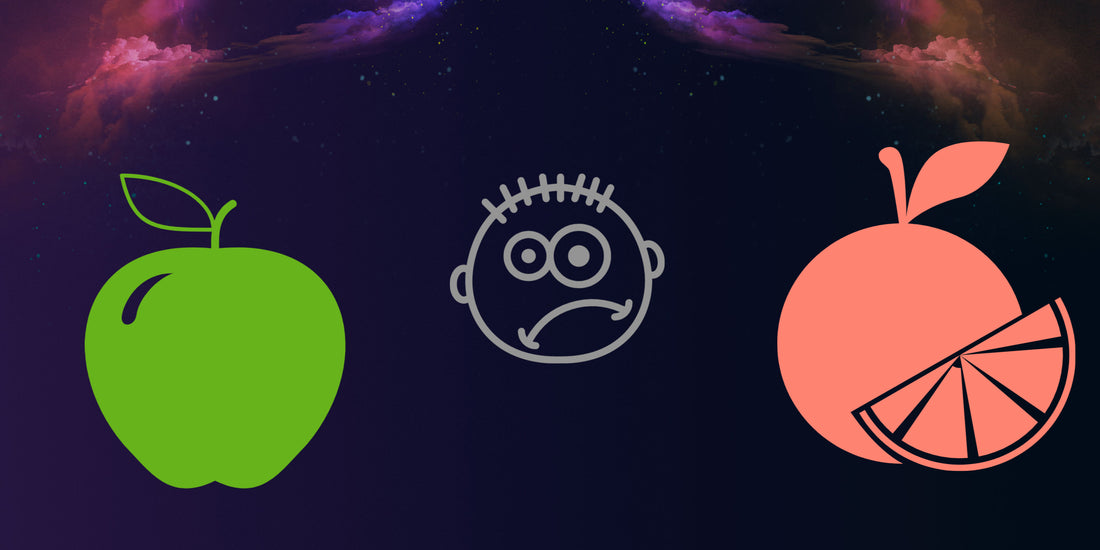The Art of Coffee Tasting And Judging Coffee Competitions
Question: How Do You Judge Coffee?
Our Director of Coffee Sciences:To be able to judge anything, you need to compare apples to apples, and not to oranges. The general criteria used to judge coffee is different for commodity institutional-based, versus specialty-based coffee. We are seeing more and more contests that give out awards for participation.
When a competition allows for both commodity and specialty roasted coffees to be judged on the same footing and they receive a participation award, then that is misleading consumers. It's saying these coffees are the same when in fact they are not.
Specific Differences of Specialty and Commodity Coffee
Specialty Coffee is fresh, being served and consumed within 3 to 14 days from roast date. By contrast, commodity-based coffee will mostly be what we consider as stale. Specialty Coffee bags have ‘birth dates’, whereas commodity-based coffee bags have ‘death dates’. Most specialty roasters are transparent. They openly display the day it was roasted and also reveal the beans used, including the names of the farms.
People with high quality coffee tend to want to brag about it, as opposed to keeping it a secret. Commodity grocery store coffee tends to obscure their expiry date for coffee, and hide what beans are used and from what farm so that the traceability trail is broken.
If you have fresh high quality beans, would you hide the birth date and where the coffee is from? Not likely! So now you know why you can’t find those details on almost all grocery store coffees as well as from the large chain coffee shops. They don’t want you to know you are drinking old coffee.
Question: Is There Any Standard Method for Judging Coffee?
Our Director of Coffee Sciences:There is no ‘one’ way for judging coffee. There are many tasting forms and competitions, but the criterion in common is technical quality. This can be measured and verified by experienced coffee cuppers or by Q-graders in blind cuppings. That is where the tasters are not told anything about the coffees they are judging, so their taste cannot be clouded by other information such as where it is from, or who roasted it.
Question: How Did You Train to be a Coffee Judge?
Our Director of Coffee Sciences:I went through a series of testing and calibrations with some of the top coffee cuppers in Canada. I also tasted with cuppers who were, and still are, heavily involved in the Cup of Excellence, as well being trained and calibrated by World Barista Championship judges.
Eventually I went on to become a sensory judge, and then a head judge in Canada. From there, I created our program of developing head judges in Canada, which led to a strong representation of Canadian judges rising to head judge at the World Barista Competitions. I am mostly proud of creating that Canadian infrastructure, as many of our judges went on to write policy and technical guidelines for the World Barista Competition.
But, I still consider myself a student of tasting. Coffee tends to humble you the minute you claim to master it.
Question: What Senses Do You Use to Judge Coffee Quality?
Our Director of Coffee Sciences:
Smell, touch (mouthfeel and viscosity), taste, vision, probably the only sense we don’t use in tasting is hearing. We don’t normally listen to the coffee to score it ;)
Question: What Makes a Cup of Coffee ‘Good’?
Our Director of Coffee Sciences:
There is no cheating quality. Like anything we eat or drink, it all starts with using high quality ingredients that are fresh. Freshness means that coffee is consumed within 14 days of roasting. Unfortunately, most people are drinking old, stale coffee without knowing it.
It's a bit like entering a French fry contest with a bag of frozen crinkle cut French fries. They probably taste ok, but no judge would mix these up with fresh, hand cut fries.
It’s worth noting that:
- A roaster cannot magically make bad coffee taste better. But a bad roaster can make good coffee taste worse!
- Higher quality coffee simply costs more. But expensive coffees are not necessarily of high quality.
Question: Does ‘Strong Coffee’ Refer to the Flavour, or the Amount of Caffeine, and is there a Link Between Flavour and Caffeine?
Our Director of Coffee Sciences:
We don’t use the word ‘strong’, because it is not a representation of flavour. Strong coffee is about intensity and concentration, and doesn’t change the flavour, ie something can taste strongly of mushroom but to say it tastes strong is incomplete.
Strong is actually used as a marketing word, with the intention to disguise or deflect attention away from a lower quality coffee. The coffee industry is rife with buzzwords to market coffee. Most of these words say nothing about the actual flavour of the beans. Ultimately caffeine and taste have a very weak link. It would be like saying beers with a higher alcohol content taste better. There’s simply no clear connection.
Question: What Is Your Experience in the Coffee Industry?
Our Director of Coffee Sciences:
I am the Co-founder, Head of Curriculum, and Dean of the Vancouver and Calgary campuses of the Canadian Barista and Coffee Academy. I am designated by the SCAA as Lead Instructor, Head Judge, and acted in the capacity of National Body Representative for the Canadian Barista Championships from 2004-2015. The Canadian Barista Championships were held in Toronto, Montreal, Calgary, Vancouver and Victoria. You can learn more by checking out Barista Canada on the web.
Question: Finally, Why do you love Coffee?
Our Director of Coffee Sciences:
I love coffee because I see it as a way of educating, and sharing my love for freshness and quality. I enjoy helping people get a solid set of skills, so they can work in the customer service industry and to open their own businesses.
It also gives me a platform to discuss and share the truth about coffee. I want to reward people and companies that do a good job in coffee. By that, I mean serving fresh ingredients that nourish customers, and give back to their communities. This can include hiring local young people and supporting local businesses.
Regrettably, the coffee market is currently controlled by companies that are strong in branding and advertising. Commodity coffee companies are overcharging for low quality coffees that are stale and usually poorly roasted (burnt). They get away with this because of clever marketing. The consumer has been misled to believe that coffee never gets old and can be stored in a freezer inevitably. This is simply not true.
I want to help the consumer understand that coffee is an ingredient that needs to be fresh, and to question its origins every step of the way, from the farm to the shelf. I want to wake up the consumer to be more aware of what they are buying and drinking.
At the same time, I don’t expect coffee drinkers to suddenly switch from what they like to what we like.
Perhaps we can make a comparison with chocolate. Most of us grew up eating cheap, low quality chocolate. With Easter around the corner, I am reminded of how excited I was as a kid to get that huge hollow chocolate bunny. Now think of how you feel about that bunny now as an adult. You don't really want to eat it, and there is that big freaky blue and white candy eye!
Our tastes mature and evolve as our palates do for most things. But in coffee, most people are still wolfing down the coffee equivalent to that Easter bunny chocolate, thinking it's high quality.
We just want people to understand what they are drinking and paying for. And if then they choose to keep eating the bunny, so be it. But at least they will know.
Our courses teach people to wake up and smell the coffee. Or to use a cheap movie reference from Con Air, we show people to “put the bunny back in the box”.



